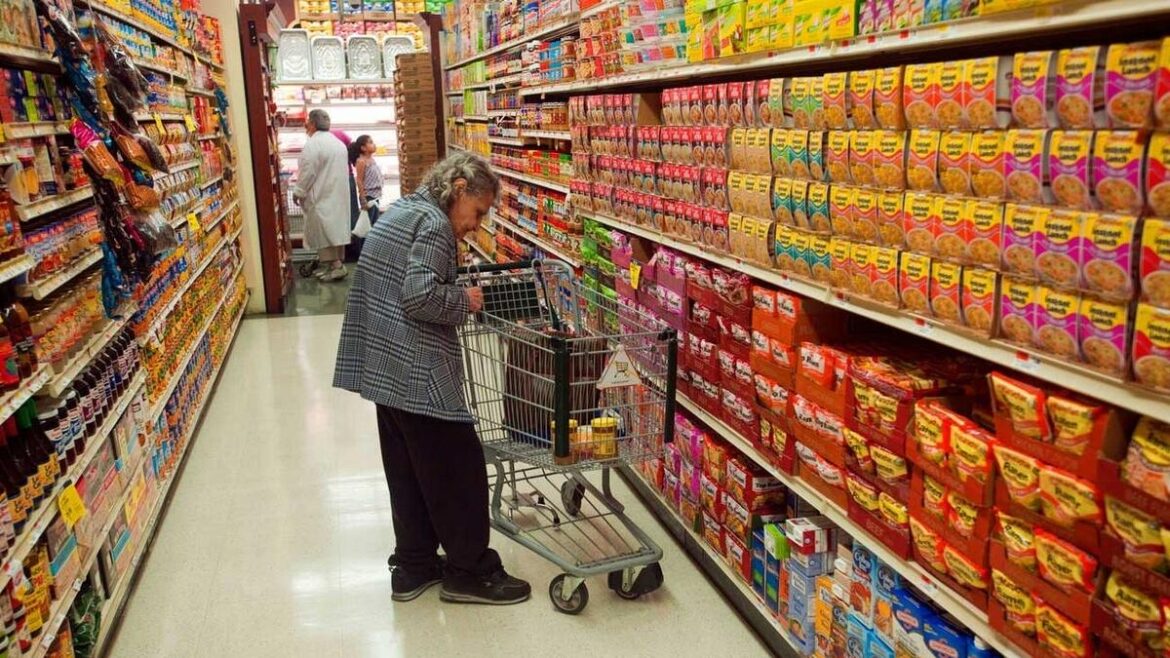By Business Reporter
Dubai: Retail pricing on nine essential consumer goods will not see any price increases without pre-approval during Ramadan, according to a top Ministry of Economy official.
The ‘policy prohibits price hikes of cooking oil, eggs, dairy, rice, sugar, poultry, legumes, bread and wheat’ without the Ministry and related authorities having their say on the matter.
“The pricing policy for consumer goods is also a key pillar of market price regulation,” said a top official.
“With the advent of Ramadan, the country’s markets are experiencing an abundance of supply of goods and products – especially strategic goods,” said Abdullah Sultan Al Fan Al Shamsi, Assistant Undersecretary for the Monitoring and Follow-Up Sector at the UAE Ministry of Economy.
“The Ministry also ensures that all consumer needs are met and that they have easy access to these goods without any unjustified price increases, and in the quantities they need.”
INDIAN IMPORTS OF FOOD ESSENTIALS GOING SMOOTHLY
The Ministry of Economy’s Al Shamsi said all options are open to increase food commodity imports from India, as is required. “Everything is proceeding smothly, whether it’s onions or any other commodity.”
India in the recent past had placed restrictions on certain food categories. Wheat exports from India are still banned.
The memo to retailers – and UAE consumers – assumes significance given the current situation around the Red Sea. But based on market feedback, imported food prices have remained broadly stable since October, apart from certain categories and brands of European sourced products.
“The new plan strengthens the pricing regulation of products and goods in the country’s markets during Ramadan and ensures the protection of consumer rights,” said Al Shamsi. And thus ‘ensuring the right balance in the contractual relationship between traders and consumers in the country’.
UAE TO FURTHER TIGHTEN RULES ON CONSUMER RIGHTS
The Ministry of Economy continues to work with ‘relevant partners’ from among the federal and local government departments, including the Supreme Commission for Consumer Protection.
“We also work in coordination with the cooperative sector, the private sector and other stakeholders to provide a friendly and safe environment for consumers when purchasing products or receiving services,” said Abdullah Sultan Al Fan Al Shamsi at the UAE Ministry of Economy
Constant monitoring of retail prices
During Ramadan, the ‘Ministry’s task forces will also follow up and oversee initiatives announced by a wide range of consumer cooperatives and outlets in the country, related to discount campaigns on prices of goods and products, through their various branches’, the official added.
Ahead of Ramadan, which starts next week, the Ministry has also held meetings with retail and other industry representatives to keep them updated of how oversight will shape up during the period.
What consumers should watch out for
- Discounts of nearly 50 per cent are offered on certain products at UAE cooperative-owned supermarkets.
- Promotions have also been introduced for multiple products by certain cooperative associations during the month of Ramadan 2024. Nearly 4,000 items are being promoted through advertising campaigns at the UAE market level, with discounts ranging between 25-75 per cent.
- Online stores will offer discounts on commodities during Ramadan. Basic commodities will have discounts of over 40 per cent, while seasonal commodities like vegetables and fruits have discounts of up to 70 per cent. More outlets have also increased their discount percentages, reaching ‘as high as 75 per cent’.
“The primary reason for the rise in promotions is the heightened competition among sales outlets, the availability of abundant supplies, and a greater level of consumer awareness,” said Al Shamsi.
Speed up retail inspections
UAE and Gulf markets have been through extended bouts of food price inflation in the recent past, mostly from the Covid era disruptions to logistics. Last year, the Ministry of Economy had stepped up retail level checks to ensure prices remained in check as much as possible.
The Ministry and the various departments of economic development had around 96,200 inspections last year. “These inspections were conducted to confront violations related to price labeling, product quality monitoring, and prevent commercial fraud and trademark infringements,” said the Ministry official. A total of 6,545 violations were detected.
And in January and February of 2024, a further 620 inspections were done.
Retain the invoice
“We urge consumers to adopt conscious purchasing practices, including the retention of their invoices, as this is the initial step in protecting their rights and verifying their purchases,” said Al Shamsi. “It serves as their assurance in reporting any grievances that jeopardize their consumer rights to the relevant competent authority.”
More to follow…


